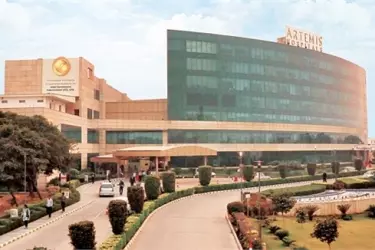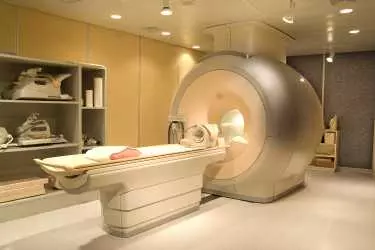Pancreatic cancer is a disease in which malignant (cancerous) cells form in the tissues of the pancreas. The pancreas is a gland located behind the stomach and in front of the spine. Pancreas produce the pancreatic juice which helps in the digestion of the food. Pancreas also produce Insulin which is needed by our cells to burn sugar and produce energy. The cells which produce the digestive juice are called Exocrine Cells and it is these cells where the cancer mostly originates.
Pancreatic cancer typically spreads rapidly to nearby organs. It is seldom detected in early stage. But for people with pancreatic cysts or a family history of pancreatic cancer, some screening steps might help detect a problem early. One sign of pancreatic cancer is diabetes, especially when it occurs with weight loss, jaundice or pain in the upper abdomen that spreads to the back.
The diagnosis of the pancreatic cancer in India is done through certain diagnostic tests that include Contrast Enhanced CT Scan of abdomen, MRCP, blood tests and biopsy. This gives a fair idea to the surgeon about your disease. However surgeon in India may also advise for a PET CT Scan to do the staging of the pancreatyic cancer.
Signs and symptoms of pancreatic cancer often don't occur until the disease is advanced. They may include:
![]() Pain in the upper abdomen that radiates to your back
Pain in the upper abdomen that radiates to your back
![]() Loss of appetite or unintended weight loss
Loss of appetite or unintended weight loss
![]() Depression
Depression
![]() New-onset diabetes
New-onset diabetes
![]() Blood clots
Blood clots
![]() Fatigue
Fatigue
![]() Yellowing of your skin and the whites of your eyes (jaundice)
Yellowing of your skin and the whites of your eyes (jaundice)
Treatment for pancreatic cancer depends on the stage and location of the cancer as well as on your overall health. If your cancer is located in the head of the pancreas, you may consider an operation called a Whipple procedure (pancreaticoduodenectomy). The Whipple procedure is technically difficult operation to remove the head of the pancreas, the first part of the small intestine (duodenum), the gallbladder and part of the bile duct.
Surgery to remove the left side (body and tail) of the pancreas is called distal pancreatectomy. Your surgeon may also remove your spleen. In some case the entire pancreas have to be removed to prevent the cancer from spreading further.

Pancreatic cancer's diagnosis is a bit tricky as it is generally misdiagnosed as as acute or chronic pancreatitis. However if diagnosed in time surgery remains the main line of treatment. The surgery can either be a whipple's surgery or pancreatic head resection or pancreatectomy. The best surgeons for the pancreatic cancer in India are Dr Kaushal Yadav and Dr Ankur Garg. They are specifically GI, pancreatic and hepatobiliary surgeons who specialize in surgeries of GI and pancreatic cancers. They have one of the best success rates among the fellow doctors and thats why they get lots of international patients for cancer surgeries.
Cost of the pancreatic cancer surgery depends upon the stage of the cancer and type of surgery opted for. It is very difficult to give a precise cost for the surgery as it may vary from case to case. However it can approximately range between USD 9000 to USD 15000 with about 10 days stay in hospital and 4 weeks post discharge stay in India. The cost of staying in a decent hotel is approximately USD 50-80 per day for two people in a double occupancy airconditioned room for 2 people. The cost of food and travel is also quite cheap in India.

Our hospitals are located in the northern part of India specially in the NCR region comprising New Delhi, Gurgaon, Noida and Faridabad which all are within a distance of 20-50 kms from the New Delhi airport. Our hospitals are super specialty in the fields of Neurosurgery, Cardiology, Joint Replacement, Cancer Care, Liver and Kidney Transplants, Cosmetic Surgery and many other branches of medicine. All our hospitals offer quality treatment and are accreditated by NABH or JCI. For patients coming from other countries our team members would receive you at the airport and escort you to the hospital or the hotel as the case maybe.

We have the latest MRI, CT Scan, Digital X-Ray, Mammography, Ultrasound, Colour Doppler, PET CT Scan, Gamma Camera (Nuclear Medicine Scans), Image Guided Radiation Therapy, Gamma Knife, Cyber Knife, Thoracosopy, Sleep Study, Lung Ultrasound, Bronchoscopy, EBUS TACE, PTBD, TARE, Liver Biopsy, Lung Biopsy etc which gives us the diagnostic and theraputic confidence for providing the right treatment.
Modular fully equipped Operation Theatres with Computer Navigation and C-Arm backed by a state of art ICU helps us in providing world class treatment to our patients. We are equipped to handle the most complex of the surgeries due to the state of art cutting edge technology.


Our team of doctors include some of the best names from the Indian Medical Fraternity. Dr Arun Saroha Dr V.S.Mehta, Dr Vikas Kathuria, Dr Sandeep Vaishya in Neurosurgery, Dr Sumita Singh in Breast and Piles,Dr Sudeep Jain, Dr Subhash Jangid, Dr Debashish, Dr Anuj Chawla, Dr Reetandyuti and Dr Praveen Tittal in Joints, Dr Priyanjana Sharma in ENT, Dr Kaushal Yadav, Dr Ankur Garg, Dr Shilpi Sharma, Dr Abhishek Mitra in Cancer Surgery, Dr Mayank Madaan, Dr Sumita Singh and Dr Vikram Singh in GI Laparoscopic Surgery, Dr Anjali Kumar, Dr Sadhna Sharma and Dr Parvinder Kaur in Obs, Gynae and Infertility, Dr Deepanshu and Dr Shalabh Agarwal in Urology, Dr Sumita Singh for Pilonidal Sinus Surgery are some of the key doctors with us.
This patient in India was suffering from Diabetic Neuropathy but could not consult a Neurologist before 6 months so the patient came to India and recovered fully in just 15 days. Watch the video above to know the full story.
In this video you would see the patients from several countries sharing their experiences about treatment in Indian Hospitals for all kinds of conditions. Watch the video to know what to expect when you come to India.
This is the story of a Bangldeshi Patient who was shot in the neck in line of duty and got complete quadriplegia due to the injury. Watch the video to see the amazing recovery due to the treatment provided in India.